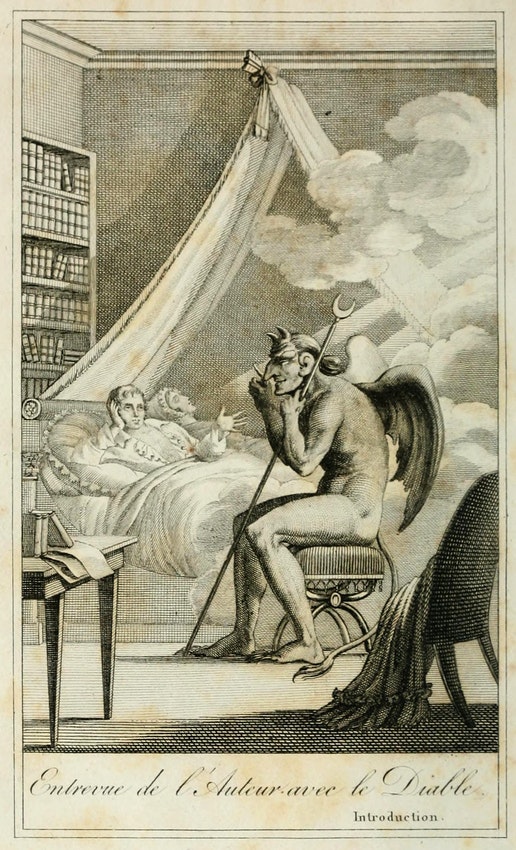Gods, Demons, and Mortals
Some logic puzzles inspired by those found in Raymond Smullyan's To Mock a Mockingbird.
Click the Solve button to confirm your selection. If you would like a little help, click the Hints button.
Shortly after Inspector Craig returned to London from his strange experience in Subterranea, he experienced three nights of strange dreams. During these nights, he did not dream that he was visiting the Isle of Dreams, but he experienced something equally odd.
He had been browsing in a library specializing in rare books on mythology, another of his many interests. His head was filled with gods and demons, and so his dreams were perhaps not so surprising.
Each night, Craig dreamed he was roaming a region in which dwelled gods, demons, and mortals.
The gods always told the truth, and the demons always lied. As to the mortals, they were either knights or knaves. As usual, the knights always told the truth and the knaves always lied.
Although all four types of inhabitants were dwelling in the same region, they came from two different dimensions. Gods and demons are immortals from the same dimension - a different dimension that the mortal knights and knaves share. Although from different dimensions, gods and knights are on the same side,a different side than the side that knaves and demons are on.
In these dreams, Inspector Craig encountered two inhabitants... of what type were they?
There are two types of statements - simple statements and compound statements. Compound statements join two simple statements with an 'and' or 'or' conjunction. If an inhabitant says "x or y", then to be a true statement, only one of x or y must be true (both could be true) - both would need to be false for the inhabitant to be a liar. If an inhabitant says "x and y", then to be a true statement both x and y must be true - only one of the statements would need to be false for the inhabitant to be lying.
Some simple statements provide a lot of information.
If an inhabitant says "I am a demon", then they must by lying - no demon would say the truth. Consequently, if an inhabitant says "I am a demon" they must be a non-demonic liar: they must be a knave.
If an inhabitant says "I am not a knight", they cannot be a knaveor demon, since this would be a truthful statement. Consequently, an inhabitant that says "I am not a knight" must be telling the truth, so must be a god.
You may be able to work out some other rules that will help you solve these puzzles...
Illustration from
Le diable peint par lui-même: ou, Galerie de petits romans,
de contes bizarres, d'anecdotes prodigieuses by Collin De Plancy (1863).
As
depicted in the essay Defining the Demonic by Ed Simon,
the Public Domain Review.